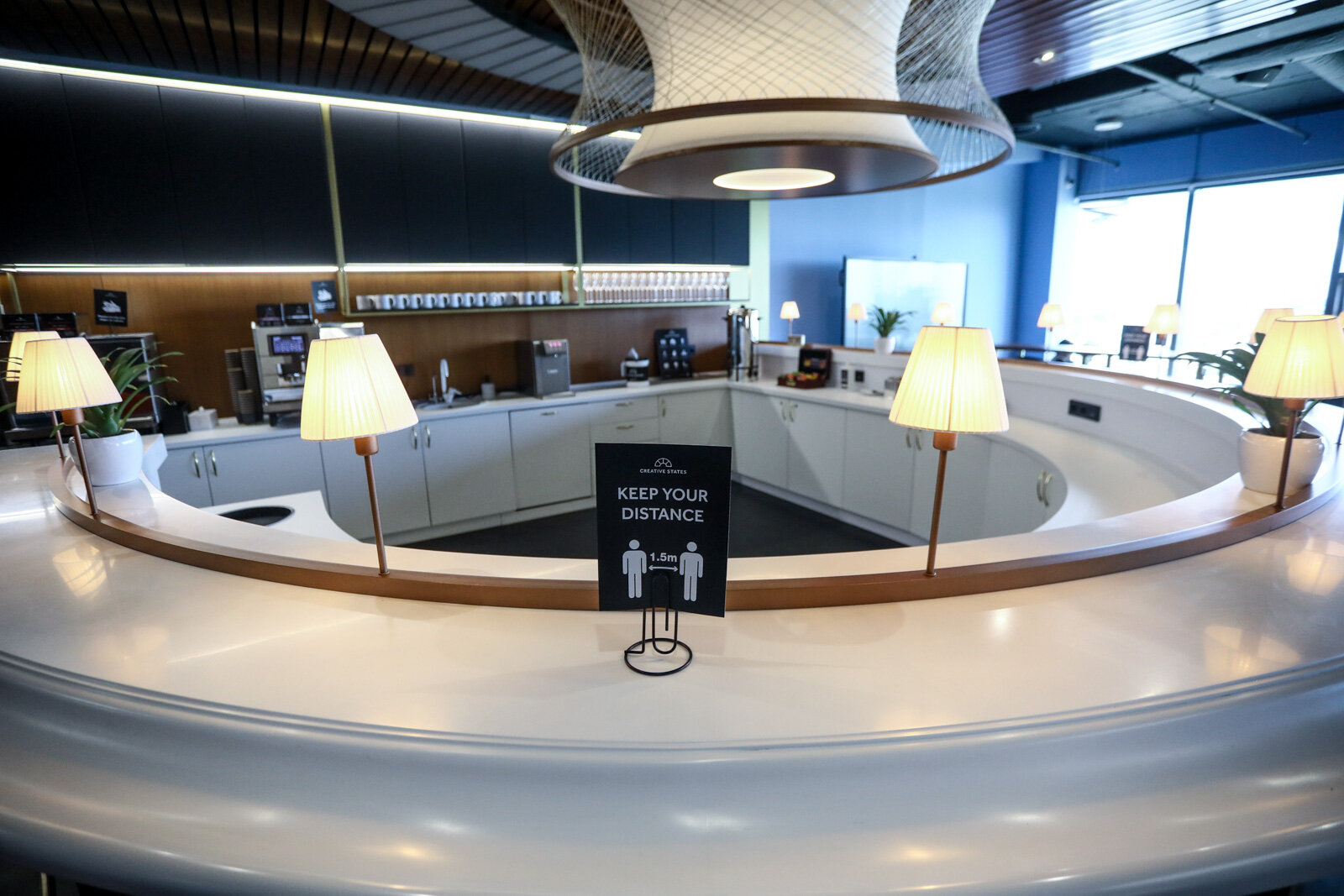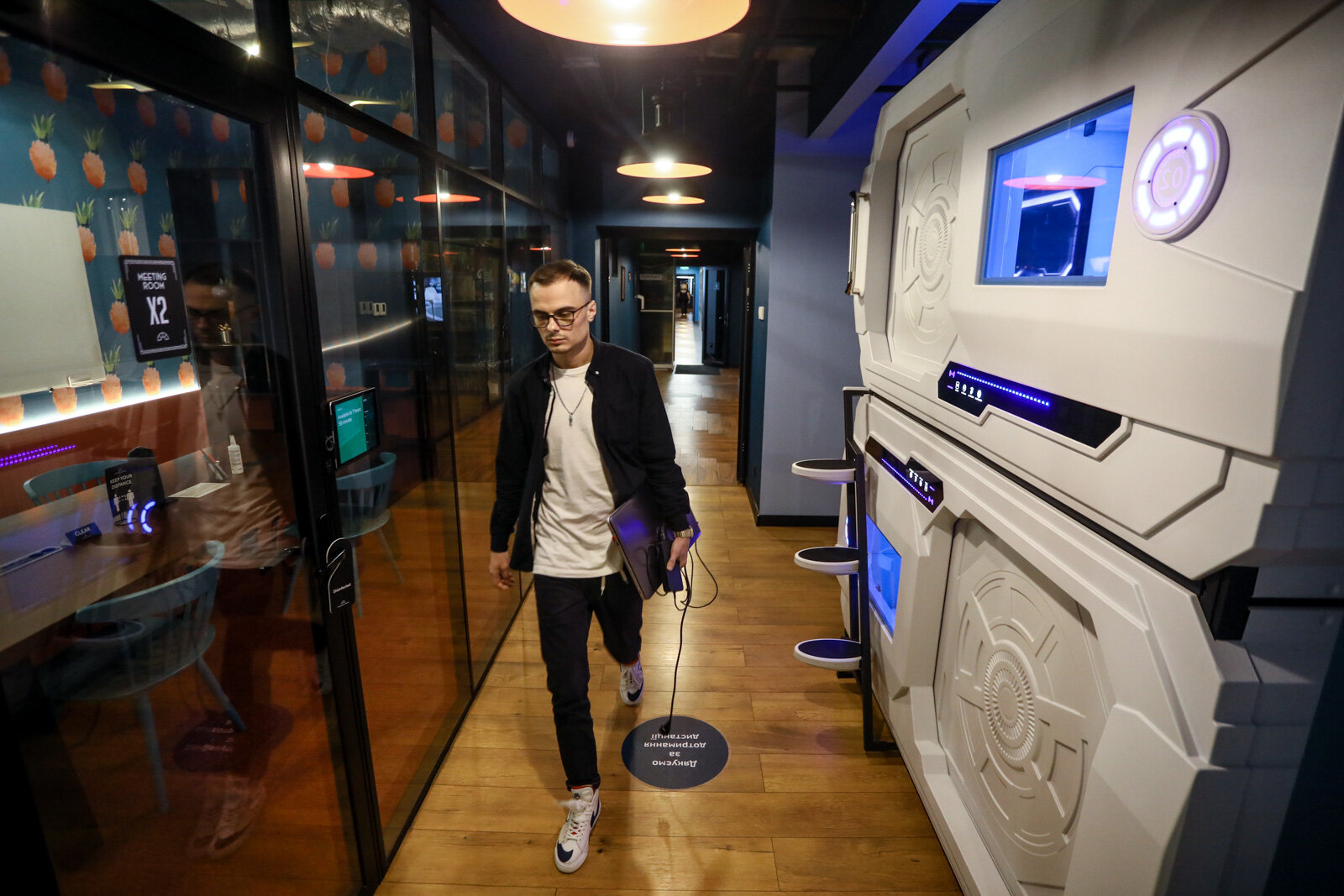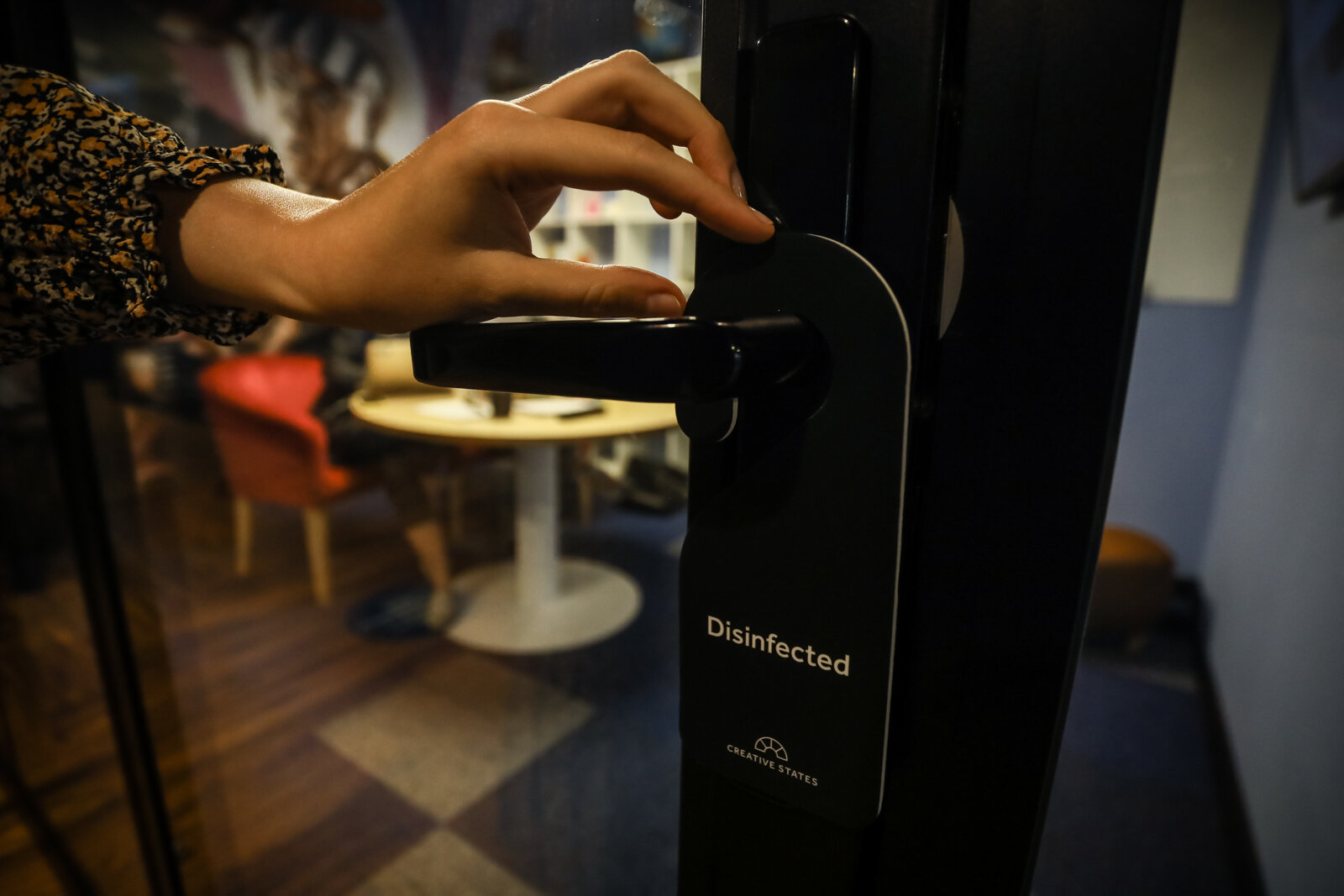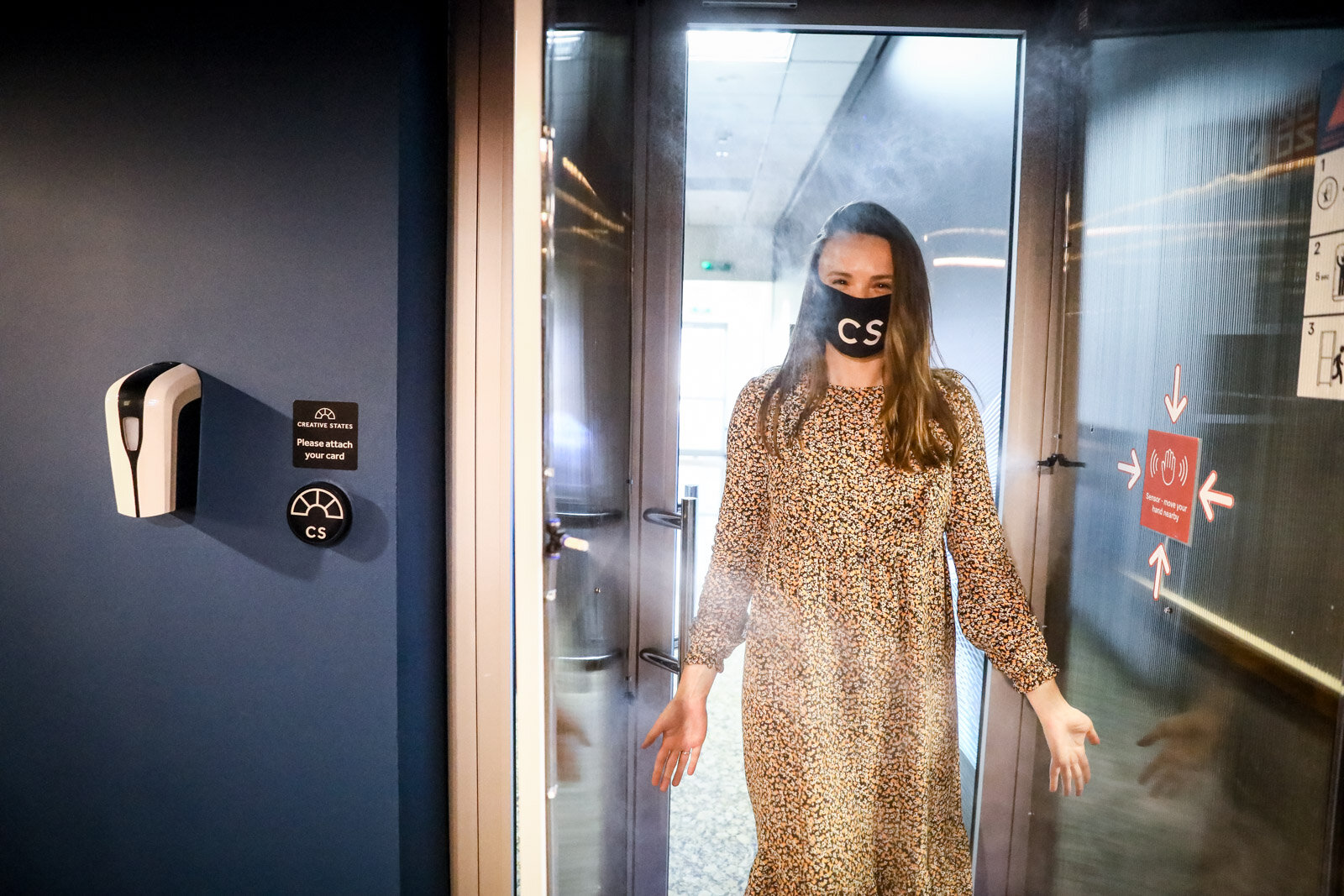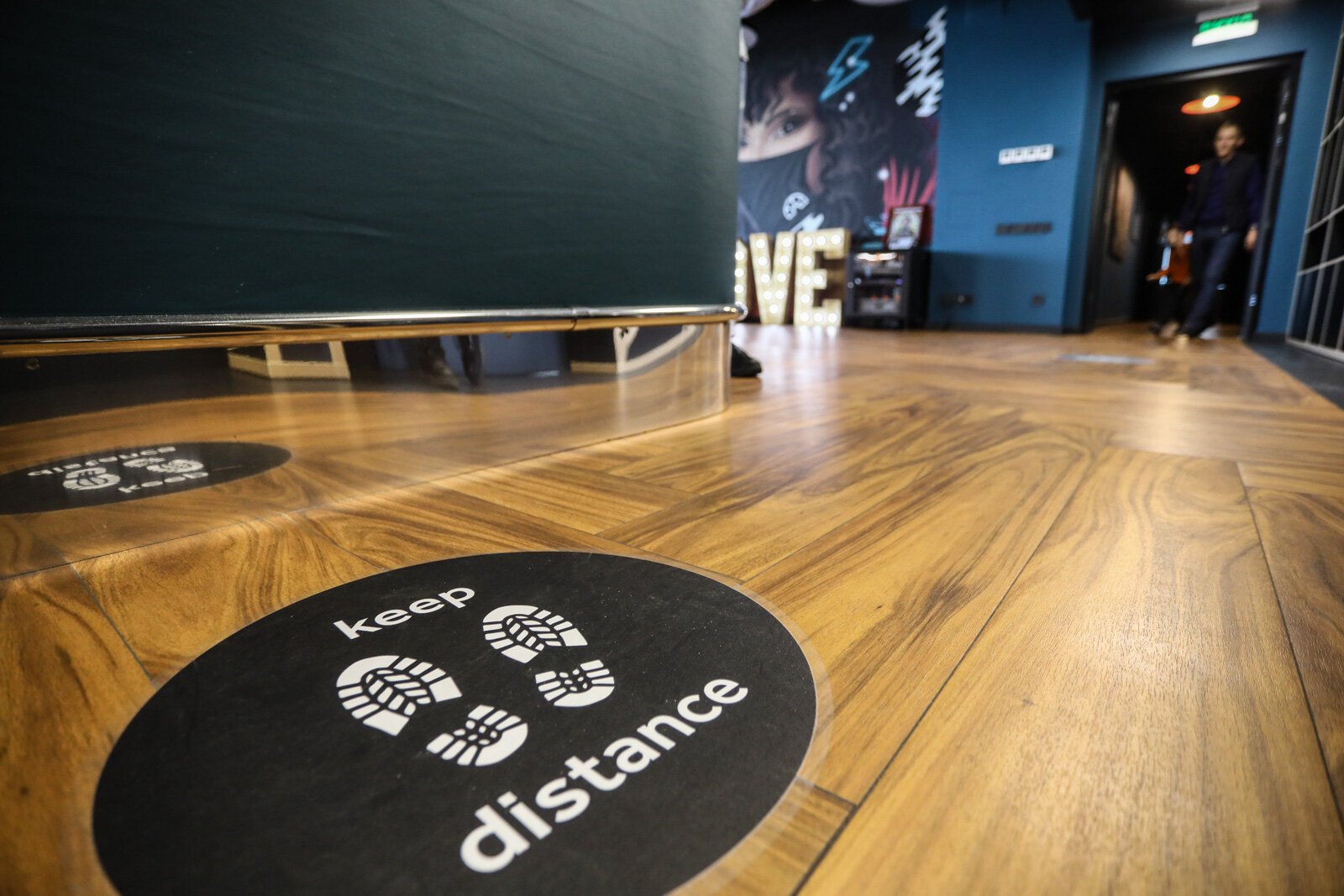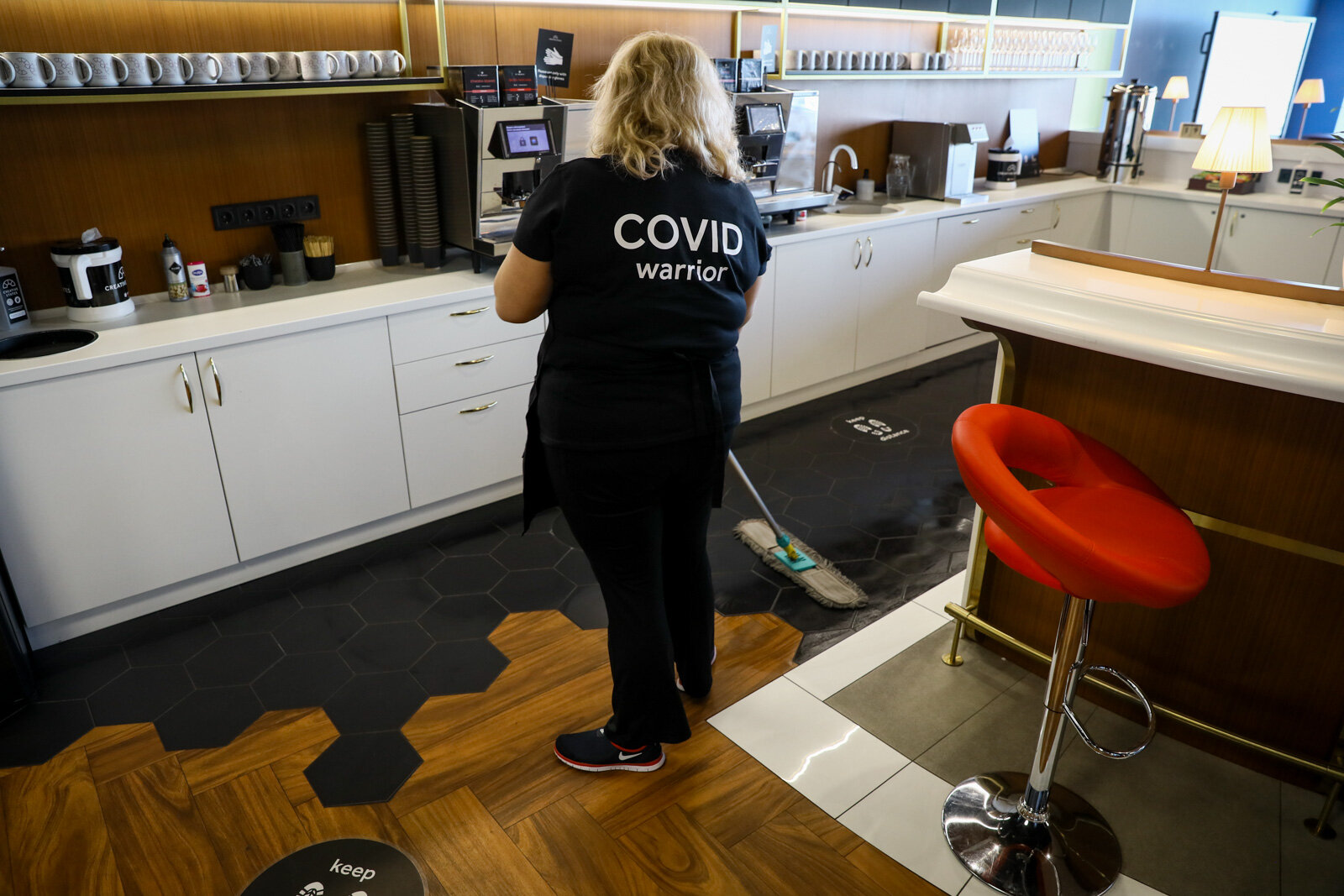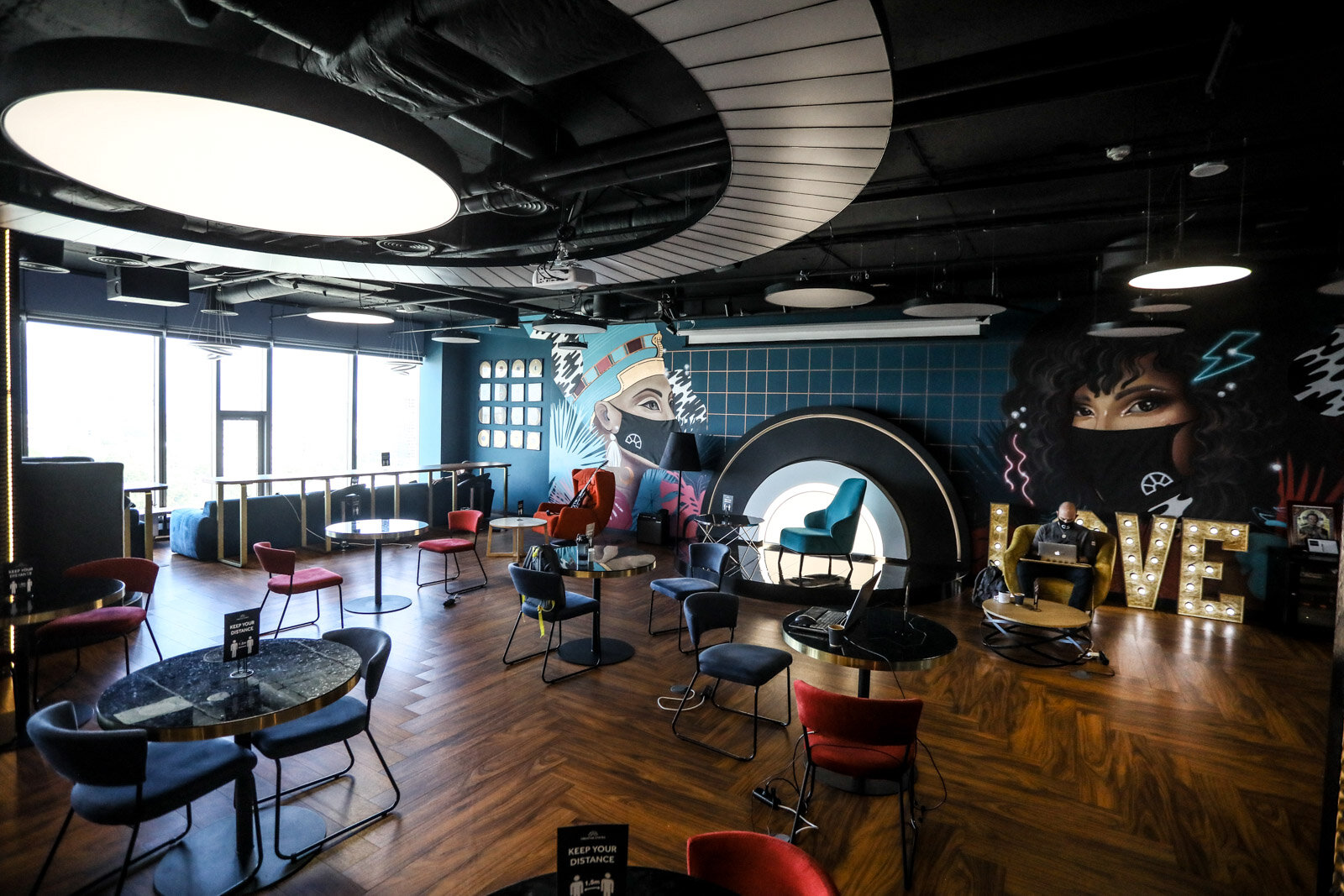For more than two months, people have been forced to work remotely because of coronavirus. Some love it. Some hate it. And the rest are somewhere in between.
For some employees, like Michael Lahoda, working remotely is hard even though his job can be done from any location. He writes texts for Israeli tech firm Wix. He was hired by the firm’s Ukrainian branch three months ago, just before the coronavirus pandemic started.
The problem he’s struggling with is a common one for those working from home: Where does the job end and personal life begin.
It can be hard to divide.
While Lahoda would like to get back to the office, he and many workers may have little choice for weeks or months to come.
While employers continue to rent empty offices even during the pandemic, waiting for staff to return to the open-space temples, no one knows when that date will come.
Big uncertainty infuses any discussion over the new workplace realities. While reports that COVID‑19 killed the office are premature, the rules are most certainly going to change because of the shared global trauma of 2020.
Offices foster face-to-face communication, personal meetings, and working in open spaces. All of these factors mean that, at a minimum, increased safety measures and social distancing are going to be the norm, even after this pandemic subsides.
Side effects of telework
Most Ukrainian tech companies have switched to remote work since the beginning of the pandemic, even though tech people are considered critical personnel in Ukraine and, hence, are allowed to work from offices.
Over 96% of staff or almost 1,500 people at Lviv-based IT company Intellias have been working from home since the lockdown began in early March. The company has even hired new people and held introductory meetings over video calls.
Vitaly Sedler, Intellias co-founder, advocates for a hybrid model — some staffers working from the office and the rest from home. This helps cut rental costs and electricity bills. But his company does not plan to switch entirely to remote work.
Text, phone, and video calls are not as effective and there’s less creativity when the workforce is scattered, Sedler says. “Remote mode makes communication more difficult, especially when it comes to complex customer negotiations,” he says.
Isolation also brings stress and anxiety due to social deprivation, psychologists say.
Psychological studies show that people tend to work faster in a team and try harder, neurobiologist Vera Efremova and psychologist Nariman Darvishov wrote in a column for Ukrainian online media outlet AIN.ua. It turns out, they say, people do care what their colleagues think about them and those opinions are motivating.
Alexander Smirnov, head of Kyiv-based creative agency Tabasco, is also bothered by the lack of face-to-face meetings. Brainstorming and sharing emotions are limited when working from home.
“It is hard to motivate creatives from behind a screen,” Smirnov says.
Global debate
The coronavirus epidemic has amplified a global debate over the future of office work on an unprecedented scale.
A survey conducted by U.S.-based Gartner revealed that 74% of companies will move at least 5% of their previously on-site workforce to permanently remote positions after the quarantine is over.
Twitter CEO Jack Dorsey even announced that employees “could work from home forever,” a week after Facebook and Google said they would allow most of their staffers to work from home through the end of 2020.
Even tycoon Warren Buffett questioned the future of offices, saying the coronavirus pandemic could lead to long-term shifts in the way people do their jobs, and switch many to remote working, the Wall Street Journal reported.
U.S. outlet Entrepreneur, in turn, noted that 80–90% of the U.S. workforce would like to work remotely at least part-time. This “would save $700 billion in the U.S. between businesses and employees,” according to estimates.
In the U.K., where 1.7 million people worked mainly from home even before the pandemic, flexible or full “working from home” policies could become regular policies.
But these changes in habits lead to new problems and sometimes decreased productivity. New York Times columnist Kevin Roose called remote work “overrated.”
Although working from home is a good option for certain categories of people — for example, new parents or people with disabilities — Roose also noted remote workers experience a dropoff in innovative thinking and team cohesion suffers.
Remote work is, nonetheless, here to stay: 72% of working adults value being able to work from home, according to a survey by Dutch-based consultancy company Randstad, which polled 185,000 respondents around the world between December 2019 and January 2020.
Another report by the same company showed that the number of remote employees in all companies will increase to 73% by 2028.
“The pandemic will simply accelerate these trends and lead employers to adapt to a new world of work,” Jos Schut, chief of Randstad’s human resources, wrote in the report.
Disinfecting everything
In Ukraine, the two-month (and counting) quarantine has accelerated pre-existing trends, according to Ilia Kenigshtein, founder of local coworking Creative States, which offers 55 offices in Kyiv.
Namely, Kenigshtein says, these trends are “security, flexibility, and serviceability.” To provide more security, for example, Creative States has installed a disinfection gate at the entrance that checks the temperature and sprays “safe and environmentally-friendly” disinfectant. Each device costs $750.
“Given that the pandemic was predictable,” Kenigshtein says the company started spraying offices with disinfectants after each workday and providing residents with medical masks and homemade hand sanitizers from the start of 2020
According to Kenigshtein’s estimates, 360 of the 450 people — roughly 80% — working in Creative States will resume work in offices by June, but safety measures will remain for a long time. Creative States promises to install non-contact thermometers and UV lamps for office disinfection.
But apart from disinfection, ideally, offices should redo their spaces to allow for social distancing for when people flood back to workspaces. Kenigshtein’s firm has introduced a 6-feet rule, leaving a minimum of 1.6 meters between people, two-arms length. Besides, there will be special routes for tenants to their desks to reduce contact with others.
“This new norm of social communication in offices is especially relevant for open spaces,” Kenigshtein says.
Andriy Fedoriv, owner of the Fedoriv marketing agency, runs a 4,000-square-meter coworking in Kyiv, providing offices and desks adapted to a diverse range of companies, from 20 to 100 people. Renters also have access to over 10 meeting rooms, almost 20 “skype rooms,” kitchens and lunch areas, like in regular offices. Fedoriv says that, during the pandemic, it’s important to give people more room in usually crowded coworking places.
“People need fresh air,” Fedoriv says.
For this reason, the entrepreneur believes coworking spaces need high ceilings and amenities such as balconies to reduce the spread of the virus. Rooms should also be compartmentalized to avoid overcrowded open spaces: no more than 15 people in one room.
But he predicted landlords can’t and won’t enforce the rules, which are “based on common sense.”
Coworking flexibility
Fedoriv says greater flexibility is coming to office space. He said coworking places should offer modular spaces, so tenants can construct the space themselves to suit their needs.
He also favors more flexible lease terms, rather than the standard monthly or yearly option.
Renting an office in a regular business center in Kyiv such as Parus costs at least $3,000 per month and one cannot rent less than 100 square meters under rigid one-year contracts. Previously, Fedoriv’s marketing agency rented an office in Arena City in downtown Kyiv for a year and a half. He felt he wasted money by paying for a bigger office than his firm needed.
“I felt like I was in a cage back then,” he says. “What I really needed was not a bigger office, but a more flexible office.”
That’s why Fedoriv co-founded Kooperativ, a coworking space in central Kyiv that offers short-term contracts of one month for $290.
Kenigshtein agrees: “Landlords should offer not just concrete walls; Creating flexible and easily transformable spaces is our undeniable reality.”
Flexible leases, including renting space by the day, will account for 30% of all commercial real estate in the future, Kenigshtein predicts.
Whatever shape the future office takes, both Smirnov and Lahoda want in.
“I am counting the days till we can return to normal.”
